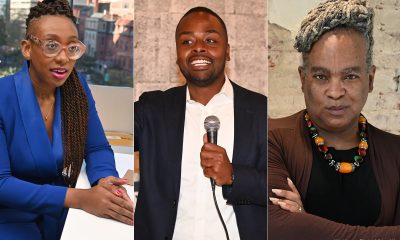a&e features
50 years of pioneers
Golden anniversary of Philadelphia ’65 event to honor early gay activists
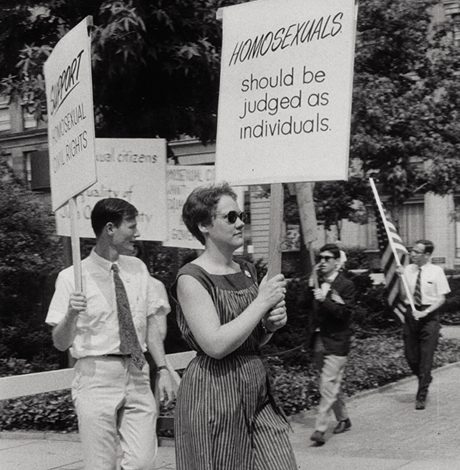
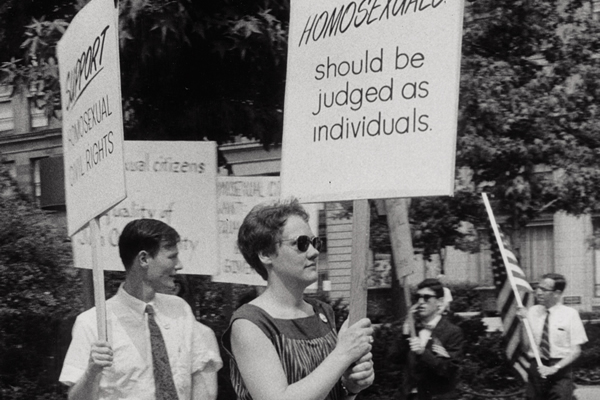
Barbara Gittings at the 1966 Independence Day protest. (Photo by Kay Tobin Lahusen, courtesy LGBT50)
LGBT 50th Anniversary
Thursday, July 2
Wreath laying at gay pioneers marker, 2:15 p.m.
National legal panel, 6:30 p.m.
National politics panel (moderated by Blade editor Kevin Naff), 8:15 p.m.
50th anniversary party, 10 p.m.
Friday, July 3
National interfaith service, 4 p.m.
“Gay Pioneers” screening, 6 p.m.
Saturday, July 4
50th anniversary VIP lunch, 11:30 a.m.
50th anniversary ceremony, 2:30 p.m.
VIP cocktail reception, 4:30 p.m.
Several other tie-in events are planned. There is no registration fee and most events are free and are held on or near Independence Mall. For more information, visit lgbt50th.org.
Frank Kameny was always quick to point out to anyone misinformed that the legendary Stonewall Riots of 1969 were not the beginnings of the modern gay rights movement.
“When people say, as you so often hear, that the gay movement started with Stonewall, if I have a chance under the circumstances in which it’s said, I invariably correct them very insistently,” Kameny, who died in 2011 at age 86, told the Blade in a 2009 interview on the occasion of the 40th anniversary of those riots. “And point out that the movement was just sort of 20 years old already and there was a groundwork.”
Kameny, friends and colleagues say, would be pleased that some of the lesser-known early gay rights demonstrations he co-coordinated, are getting properly commemorated. On July 2-5, the 50th anniversary of the East Coast Homophile Organization’s (ECHO), first Independence Day demonstration at Independence Hall in Philadelphia on July 4, 1965, an event that was continued through 1969, will be commemorated with a lavish, three-day spate of activities. The Mattachine Society of Washington, founded by Kameny and the late Jack Nichols, was one of the main ECHO groups.
The National LGBT 50th Anniversary Celebration is being coordinated by an organizing committee within Equality Forum. Malcolm Lazin, Equality Forum’s executive director and event committee chair, says it’s important these “Gay Pioneers,” (also the name of a 2004 documentary short he helped make that told of the 1965 proceedings) are remembered. A 40th anniversary event was held 10 years ago and many of the pioneers were able to attend, but Lazin says this year’s event is on a much bigger scale.
Among the festivities are panel discussions, a screening of “Gay Pioneers,” fireworks, parties, LGBT history exhibits, concerts, an interfaith service, a wreath laying at the Gay Pioneers historic marker, a street festival and a one-hour anniversary ceremony in front of Independence Hall emceed by lesbian comedian Wanda Sykes. Prominent guests will include James Obergefell, a plaintiff in the current Supreme Court marriage case, along with activists Edith Windsor, Judy Shepard and more. There is no registration fee and most programs are free. Lazin says there’s no way to predict how many might attend but says because of the holiday weekend and Philadelphia’s proximity to Washington and New York, not to mention the historic nature of the proceedings, “we expect a very, very large crowd.”
Lazin says even though the Mattachine Society had held previous protests — perhaps most notably a White House picket in April 1965 — the Philadelphia demonstration deserves special commemoration. He says there were only about 200 people out to any public degree at the time. Kameny remembered it being even fewer.
“The ones before had always been based around a specific issue such as the one at the White House to protest Fidel Castro who rounded up Cuban homosexuals,” Lazin says. “There was another one around military discharges and another around the Civil Service Commission’s prohibition against the federal government employing gays and lesbians. This one was remarkably different. It was not just one city involved, but three. Also, it was the first time it was not based around a specific issue and … it was the first time it wasn’t a one-off. These continued every July 4th from 1965 to 1969 and it was organized by the truly seminal leaders of the movement.”
Lazin calls Kameny and his longtime co-conspirator, the late Barbara Gittings, who was involved with Kameny right from the beginning (though she lived in Philadelphia) and who died of breast cancer at age 74 in 2007, the “father and mother of the LGBT civil rights movement.” Others involved included Rev. Robert Wood, now a nonagenarian whom the Blade interviewed last year (Wood authored the seminal 1960 book “Christ and the Homosexual”) and Lilli Vincenz, who lives in the D.C. area and was involved with Kameny very early on.
“When Frank and Barbara and the other gay pioneers stepped forward,” Lazin says, “the federal government would not employ an openly gay person, the American Psychiatric Association classified us as mentally ill and virtually every state made it a crime for consenting adults to engage in same-sex intimacy in their own homes. Most states also made it either a crime or grounds for a loss of license for more than one homosexual to be in a bar, so homophobia was totally accepted and totally pervasive and totally toxic. It took huge courage for Frank and Barbara to step forward, knowing it would make them unemployable and personas non grata, so we all stand on their shoulders.”
Kate Kendell, director of the National Center for Lesbian Rights, who says it will be a great honor to pay tribute to Gittings at the anniversary ceremony at Independence Hall on the anniversary, agrees.
“It’s so often the case that we sometimes neglect to fully appreciate the shoulders we stand on,” Kendell says. “Barbara Gittings demonstrated a kind of remarkable courage that for the time was unprecedented. To march in front of the White House with a sign demanding that homosexuals not be discriminated against by the government and then to pass out literature to passersby or to those who stopped to talk, in the late 1950s and early 1960s, demanded a sort of bravery that frankly, I would not have possessed. And we know that our visibility is the most important first step to our liberation. She, and of course Frank Kameny, created that visibility out of almost nothing. There was no existing infrastructure there, there were no role models, there were no headlines and every story or reference in pop culture or in the media was shaming, negative and depicted us as a threat and sick. Barbara Gittings with a handful of other people who stood up at that time are owed an un-repayable debt.”
Kay Tobin Lahusen, Gittings’ partner of 46 years, says Gittings would be pleased at the recognition.
“She would have felt like a little bit of heaven had come down to Earth,” Lahusen, 85, says during a phone interview with the Blade. “She would have loved to have seen her fellow picketers recognized for their role in helping launch the movement. She was for anything that advanced the cause.”
Lahusen, who met Gittings at a Daughters of Bilitis picnic in 1961, is in good spirits. Though she won’t attend the festivities next month (“I’ll get lots of reports, don’t worry,” she says), she takes delight in last weekend’s landslide vote in Ireland to legalize same-sex marriage, calling it a “landmark victory of the gay cause.” She quotes an observer who said it “puts us ‘on the vanguard of social change movements’ and I would agree.” She’s also thrilled that a biography of Gittings by Tracy Baim of Windy City Times will be released by the time of the Philadelphia commemoration.
“It’s chock-full of photographs of Barbara and her activities, most of which I took,” Lahusen says. “When I survey all that has happened in the last 50 years, there has been a tectonic shift in attitudes. It’s quite amazing and thrilling.”
Paul Kuntzler, who met Kameny one night at the Chicken Hut, a long-closed D.C. gay bar, in February 1962, is one of the few survivors of the 1965 Independence Hall demonstration who will be attending the 50th anniversary. He knew Gittings well and says she and Kameny were kindred spirits and close friends.
“She was basically the Frank Kameny of Philadelphia,” Kuntzler says. “Very brainy, a very fine mind. Very quick witted. Very smart. She was truly an intellectual and like Frank in many ways.”
He says she’d be honored by the commemoration.
“She was the principal person in Philly and among women in the U.S., she was the most important, the most influential.”
Kuntzler, who has amazing recall of dates and events, remembers some details of the first July 4th event but says some of the other early demonstrations in which he participated with the Mattachine Society, stand out more in his memory.
Kuntzler had spent the weekend in Rehoboth Beach, Del., with his partner, Stephen Brent Miller (who died in 2004).
“I left that morning from Rehoboth Beach in a suit and tie and drove to Philly for the event,” Kuntzler, 73, says. “I believe it was about an hour long. And then I drove back. … I don’t remember any reaction, not particularly. I think we just did it. The one at the White House stands out much more vividly because there were so many photographers there. I guess they were expecting us. I think there were some barricades we marched around. According to people today, there were 40 there but I would be surprised if it was that many. I didn’t remember there being quite that many. But we were all in suits and ties.”
Kuntzler says the mood was festive but he was eager to return to his partner at the beach.
“We had dinner that night at the Avenue Restaurant, which was a very popular place, very good food. There were several of us at the table for dinner and I met Richard Davison, who just died a couple years ago, but he was working for the federal government at the time and I remember he was very nervous as I was talking about what had gone on earlier in the day because in those days, if you were gay and they found out, you could get fired.”
Kuntzler says to his knowledge, only a handful who attended are still alive including Randy Wicker of New York, Vincenz and a few others whose names he does not recall.
Kameny long contended that the Stonewall Riots would never have happened had he and the other pioneers not laid the groundwork. It’s a theory Lazin and Kendell readily agree with.
“To say Stonewall started everything is like saying the Boston Tea Party started the American Revolution,” Lazin says. “And forgetting that Washington, Benjamin Franklin, Thomas Jefferson and other seminal founding fathers had laid the groundwork. … What’s remarkable about Frank and Barbara is that not only did they lead the way prior, they continued leading the way after Stonewall as well.”
Kameny told the Blade in 2009 about the convergence of events around the time of Stonewall, which had happened less than a week before the final Independence Day protest in 1969. Kameny, who had been in Washington when Stonewall happened but heard about it immediately through fellow ECHO contacts, said he was elated. Kameny happily joined in the first Christopher Street Gay Liberation Day March on June 28, 1970 — the first Pride march — and said he was thrilled to realize the movement was at a major turning point.
“I remember … seeing this vast horde of people and I was absolutely speechless,” said Kameny, who was used to counting protest participants in the dozens rather than the thousands. “Flowing in like a river into the Sheep Meadow in Central Park, if nothing else, there it was in front of one’s eyes. It would have been impossible in terms of anything movement-wise prior to that. We had clearly overstepped a line. We had transitioned.”
As exciting as that was, Kendell says it would be a travesty if the earlier efforts of Kameny and Gittings and their comrades were forgotten.
“First you start to see the small tremors and people start to question the dominant patriarchy and they start to question the way power is structured and they start to question their own oppression,” Kendell says. “But then there’s a moment when the match just gets lit. … When Stonewall happened, the fury of it was ignited by that simmering sense of injustice, which was, I think, in large part ignited by the events in Philadelphia.”
Kendell also says, even with the enormous strides that have been made, LGBT people today can still be inspired by the examples of Kameny and Gittings.
“For me, the moral of the story is that you can resist wherever you are and whoever you are,” she says. “It’s not something that happens somewhere else. We’re agents in our own liberation.”
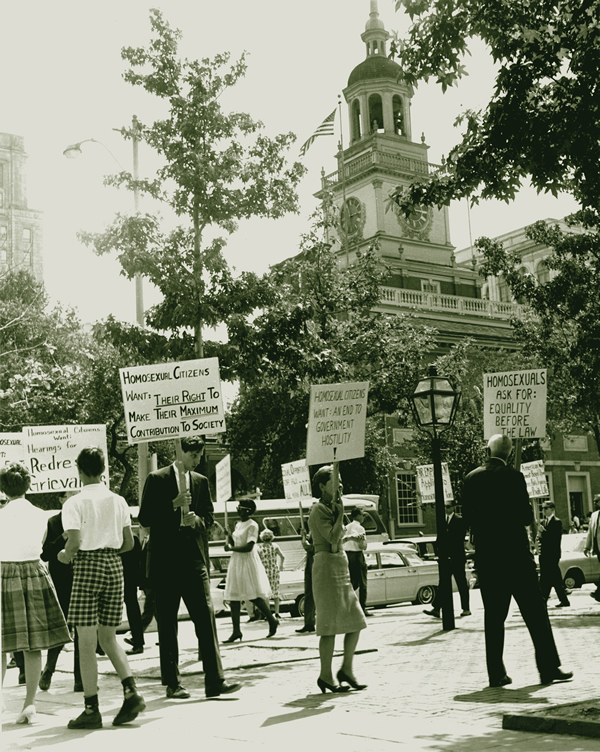
Gay protesters at Independence Hall in Philadelphia on July 4, 1965. (Photo courtesy LGBT50)
a&e features
Queer highlights of the 2026 Critics Choice Awards: Aunt Gladys, that ‘Heated Rivalry’ shoutout and more
Amy Madigan’s win in the supporting actress category puts her in serious contention to win the Oscar for ‘Weapons’
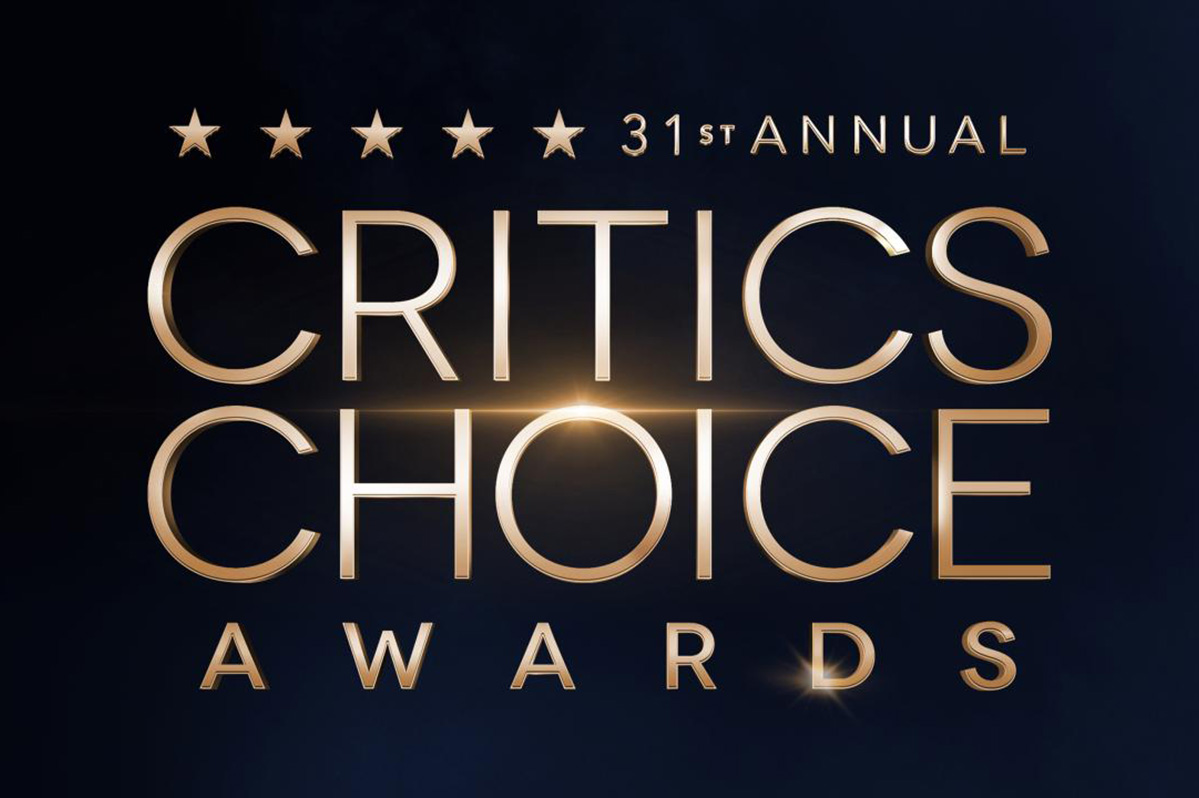
From Chelsea Handler shouting out Heated Rivalry in her opening monologue to Amy Madigan proving that horror performances can (and should) be taken seriously, the Critics Choice Awards provided plenty of iconic moments for queer movie fans to celebrate on the long road to Oscar night.
Handler kicked off the ceremony by recapping the biggest moments in pop culture last year, from Wicked: For Good to Sinners. She also made room to joke about the surprise hit TV sensation on everyone’s minds: “Shoutout to Heated Rivalry. Everyone loves it! Gay men love it, women love it, straight men who say they aren’t gay but work out at Equinox love it!”
The back-to-back wins for Jacob Elordi in Frankenstein and Amy Madigan in Weapons are notable, given the horror bias that awards voters typically have. Aunt Gladys instantly became a pop culture phenomenon within the LGBTQ+ community when Zach Cregger’s hit horror comedy released in August, but the thought that Madigan could be a serious awards contender for such a fun, out-there performance seemed improbable to most months ago. Now, considering the sheer amount of critics’ attention she’s received over the past month, there’s no denying she’s in the running for the Oscar.
“I really wasn’t expecting all of this because I thought people would like the movie, and I thought people would dig Gladys, but you love Gladys! I mean, it’s crazy,” Madigan said during her acceptance speech. “I get [sent] makeup tutorials and paintings. I even got one weird thing about how she’s a sex icon also, which I didn’t go too deep into that one.”
Over on the TV side, Rhea Seehorn won in the incredibly competitive best actress in a drama series category for her acclaimed performance as Carol in Pluribus, beating out the likes of Emmy winner Britt Lower for Severance, Carrie Coon for The White Lotus, and Bella Ramsey for The Last of Us. Pluribus, which was created by Breaking Bad’s showrunner Vince Gilligan, has been celebrated by audiences for its rich exploration of queer trauma and conversion therapy.
Jean Smart was Hack’s only win of the night, as Hannah Einbinder couldn’t repeat her Emmy victory in the supporting actress in a comedy series category against Janelle James, who nabbed a trophy for Abbott Elementary. Hacks lost the best comedy series award to The Studio, as it did at the Emmys in September. And in the limited series category, Erin Doherty repeated her Emmy success in supporting actress, joining in yet another Adolescence awards sweep.
As Oscar fans speculate on what these Critics Choice wins mean for future ceremonies, we have next week’s Golden Globes ceremony to look forward to on Jan. 11.
a&e features
Looking back at the 10 biggest A&E stories of 2025
‘Wicked,’ Lady Gaga’s new era, ‘Sexy’ Bailey and more
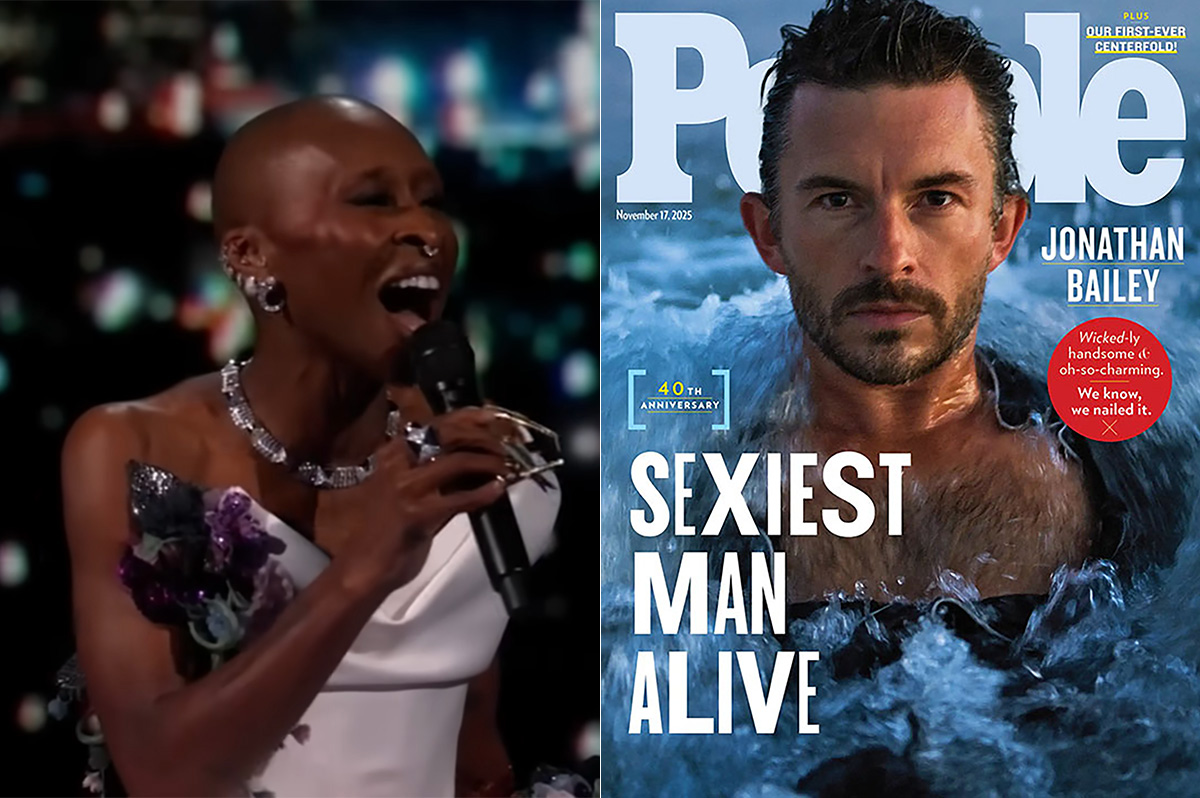
Although 2025 was a year marked by countless attacks on trans rights and political setbacks, the year also saw brilliant queer artists continuing to create art. From Cannes and Sundance Award winners now vying for Oscar consideration to pop icons entering new stages of their careers, queer people persevered to tell their stories through different media.
With the state of the world so uncertain, perhaps there’s no more vital time to celebrate our wins, as seen through some of this year’s top pop culture moments. While there’s no collection of 10 stories that fully encompass “the most important” news, here are some events that got the gays going:
10. ‘Mysterious Gaze of the Flamingo’ wins big at Cannes
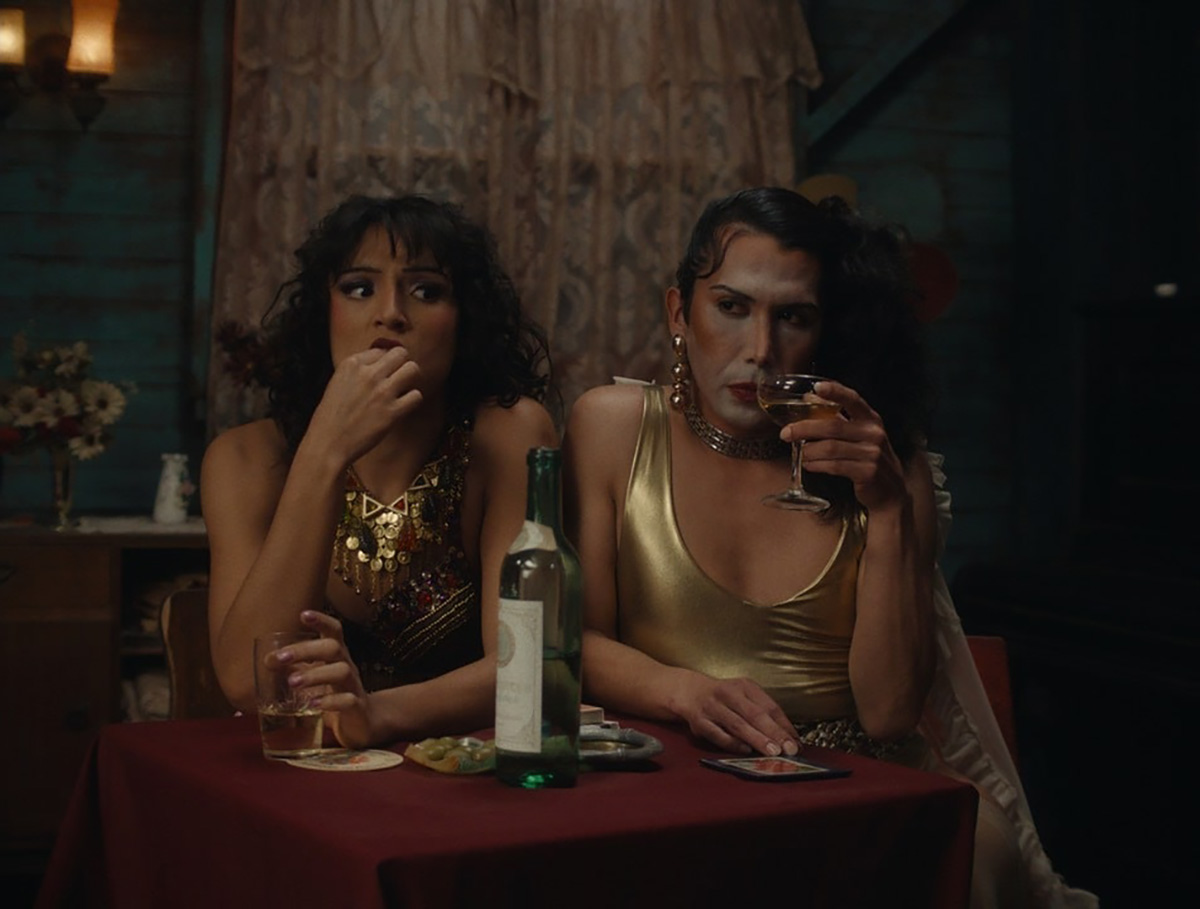
The Cannes Film Festival has become a crucial start for films hoping to make their way to the Oscars, and first-time director Diego Céspedes won the top Un Certain Regard prize for his intimate western “The Mysterious Gaze of the Flamingo.” The film is set in the ‘80s and is intended as an allegory for the AIDS epidemic. Seeing a film that unpacks vital queer history win one of the most coveted awards at Cannes has been a huge point of pride in the independent filmmaking community.
Since the film bowed at Cannes, it has been selected as Chile’s Oscar entry in the Best International Feature race. Speaking with The Blade during the film’s AFI Fest run in October, Céspedes said: At first, I was kind of scared to have this campaign position in the times that we’re living [in] here. But at the same time, I think the Oscars mean a huge platform — a huge platform for art and politics.”
9. ‘The Last of Us’ returns for an even gayer season 2
While the first season of The Last of Us gave us one of TV’s most heartbreaking queer love stories in the episode “Long, Long Time,” Season 2 doubled down on its commitment to queer storytelling with the blossoming relationship between Ellie (Bella Ramsey) and Dina (Isabela Merced). The show expanded on the pair’s relationship in the original video game, making it perhaps the central dynamic to the entire season. That unfortunately came with more homophobic backlash on the internet, but those who checked out all the episodes saw a tender relationship form amid the show’s post-apocalyptic, often violent backdrop. For their performance, Ramsey was once again nominated for an Emmy, but Merced deserved just as much awards attention.
8. ‘Emilia Pérez’ sparks controversy
Jacques Audiard’s genre-bending trans musical “Emilia Pérez” proved to be an awards season juggernaut this time last year, winning the Golden Globe for Best Musical/Comedy. But when the lead star Karla Sofia Gascón’s racist, sexist, and homophobic old tweets resurfaced, the film’s Oscar campaign became a tough sell, especially after Netflix had tried so hard to sell Emilia Pérez as the “progressive” film to vote for. Mind you, the film had already received significant backlash from LGBTQ+ audiences and the Mexican community for its stereotypical and reductive portrayals, but the Gascón controversy made what was originally just social media backlash impossible to ignore. The only person who seemed to come out of the whole debacle unscathed was Zoe Saldaña, who won the Oscar for Best Supporting Actress over Ariana Grande.
7. ‘Sorry, Baby’ establishes Eva Victor as major talent
Back in January at the Sundance Film Festival, Eva Victor (known by many for her brand of sketch comedy) premiered their directorial debut “Sorry, Baby” to rave reviews, even winning the Waldo Salt Screening Award. Victor shadowed Jane Schoenbrun on the set of “I Saw the TV Glow,” and seeing Victor come into their own and establish such a strong voice immediately made them one of independent cinema’s most exciting new voices. A memorable scene in the film sees the main character, Agnes (played by Victor), struggling to check a box for male or female, just one example of how naturally queerness is woven into the fabric of the story.
Most recently, Victor was nominated for a Golden Globe for her performance in the film, and she’s represented in a category alongside Jennifer Lawrence (“Die My Love”), Jessie Buckley (“Hamnet”), Julia Roberts (“After the Hunt”), Renate Reinsve (“Sentimental Value”) and Tessa Thompson (“Hedda”). The film also received four Independent Spirit Award nominations overall.
6. Paul Reubens comes out in posthumous doc
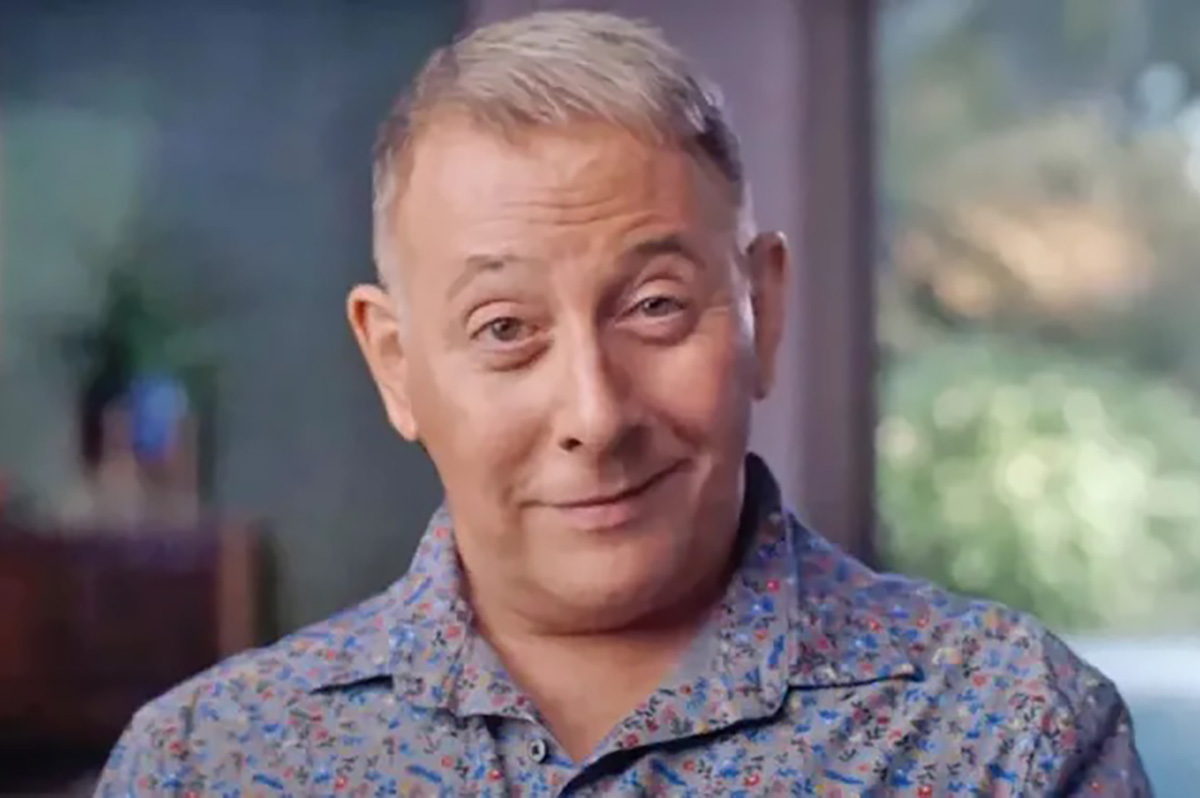
While Paul Reubens never publicly came out as gay before passing away in 2023, the two-part documentary “Pee-wee as Himself” premiered back in May on HBO Max, giving the legendary comedian a chance to posthumously open up to the world. Directed by Matt Wolf, the documentary explores how Reubens found his alter ego Pee-Wee Herman and why he kept his private life private.
The documentary won an Emmy in the Outstanding Documentary or Nonfiction Special category and remains one of the most critically acclaimed titles of the year with a 100% Rotten Tomatoes score. Also worth noting, the National Geographic documentary Sally told the posthumous coming out story of Sally Ride through the help of her long-time partner, Tam O’Shaughnessy.
5. Lady Gaga releases ‘Mayhem’
Lady Gaga entered a new phase of her musical career with the release of Mayhem, her seventh album to date. From the frenzy-inducing pop hit Abracadabra to the memorable Bruno Mars duet featured on “Die With a Smile,” seeing Gaga return to her roots and make an album for the most die-hard of fans was especially rewarding after the underwhelming film releases of “House of Gucci” and “Joker: Folie à Deux.” Gaga has been touring with The Mayhem Ball since July, her first arena tour since 2018. She even extended her tour into 2026 with more North American dates, so the party isn’t stopping anytime soon. And Gaga is even set to make an appearance next May in “The Devil Wears Prada 2.”
4. Cynthia Erivo, Ariana Grande perform at the Oscars
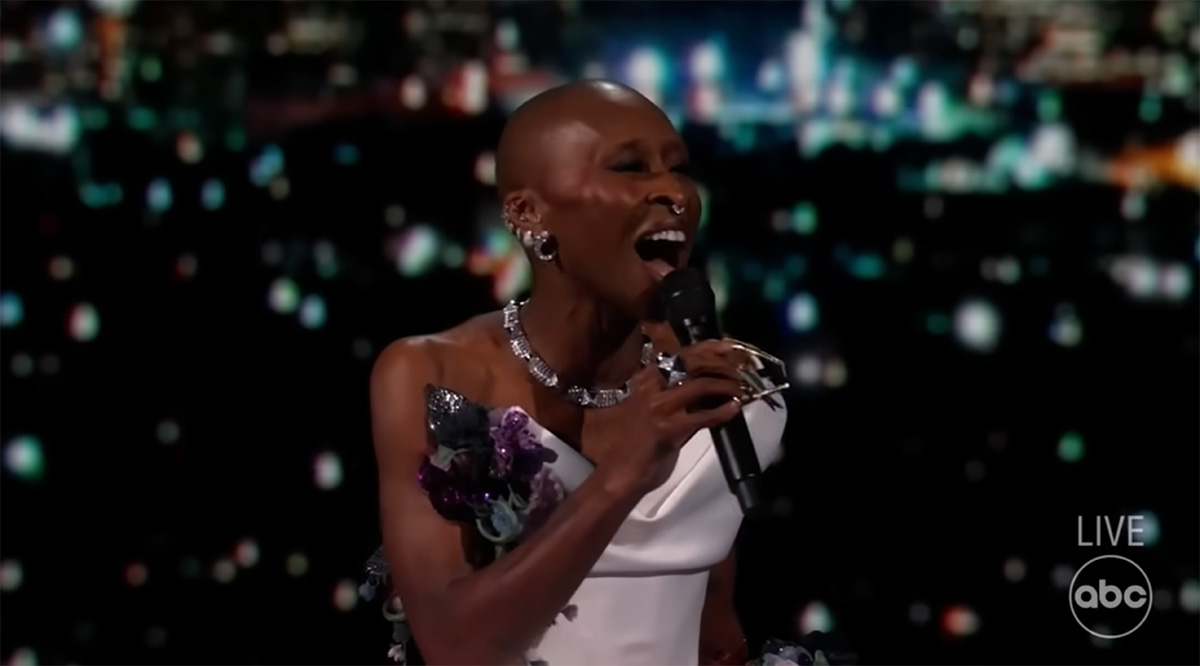
While “Wicked: For Good” didn’t quite reach the heights of the first film, we will forever have Cynthia Erivo and Ariana Grande’s breathtaking live performance that opened the 97th Academy Awards. The pair sang a rendition of “Over the Rainbow,” “Home,” and “Defying Gravity,” paying proper homage to the original 1939 “Wizard of Oz.” Even non-Wicked fans can’t deny how magical and brilliantly staged this performance was. With both Erivo and Grande up for acting Oscars last year, they’re hoping to repeat success and make history with consecutive nominations. Either way, let’s hope there’s another live performance in the making, especially with two new original songs (The Girl in the Bubble and No Place Like Home) in the mix.
3. Indya Moore speaks out against Ryan Murphy
Indya Moore has consistently used social media as a platform for activism, and in September, posted a 30-minute Instagram live speaking out against “Pose” co-creator Ryan Murphy. Moore claimed that Murphy wasn’t being a true activist for trans people. “Ryan Murphy, we need you to do more. You need to address the racism, the violence, and the targeting of people on your productions, Ryan Murphy. You do need to make sure trans people are paid equally. Yes, Janet did the right thing,” Moore said. Murphy was also back in the headlines this year for the critically panned “All’s Fair” and the controversial “Monster: The Ed Gein Story” starring Laurie Metcalf and Charlie Hunnam.
2. Cole Escola wins Tony for Best Leading Actor
Few pop culture moments this year brought us together more than Cole Escola winning a Tony award for “Oh, Mary!” the Broadway show they created, wrote and starred in (we love a triple threat!) Escola made history by becoming the first nonbinary person to win a Tony in the leading actor category, and seeing them excitedly rush to the stage wearing a Bernadette Peters-inspired gown instantly became a viral social media moment.
The cherry on top of Escola’s major moment is the recent news that they are writing a Miss Piggy movie with Jennifer Lawrence and Emma Stone producing — news that also broke the internet for the better. We cannot wait!
1. Jonathan Bailey makes gay history as ‘Sexiest Man Alive’

The same year as his on-screen roles in blockbusters “Jurassic World Rebirth” and “Wicked: For Good,” Jonathan Bailey made history as the first openly gay man to be named People magazine’s “Sexiest Man Alive.” The fact that it took 40 years for an openly gay man to earn the title is a signifier of how far we still have to go with queer representation, and seeing Bailey celebrated is just one small step in the right direction.
“There’s so many people that want to do brilliant stuff who feel like they can’t,” he told PEOPLE, “and I know the LGBT sector is under immense threat at the moment. So it’s been amazing to meet people who have the expertise and see potential that I could have only dreamed of.” In 2024, Bailey founded the charity titled The Shameless Fund, which raises money for LGBTQ+ organizations.
a&e features
Your guide to D.C.’s queer New Year’s Eve parties
Ring in 2026 with drag, leather, Champagne, and more
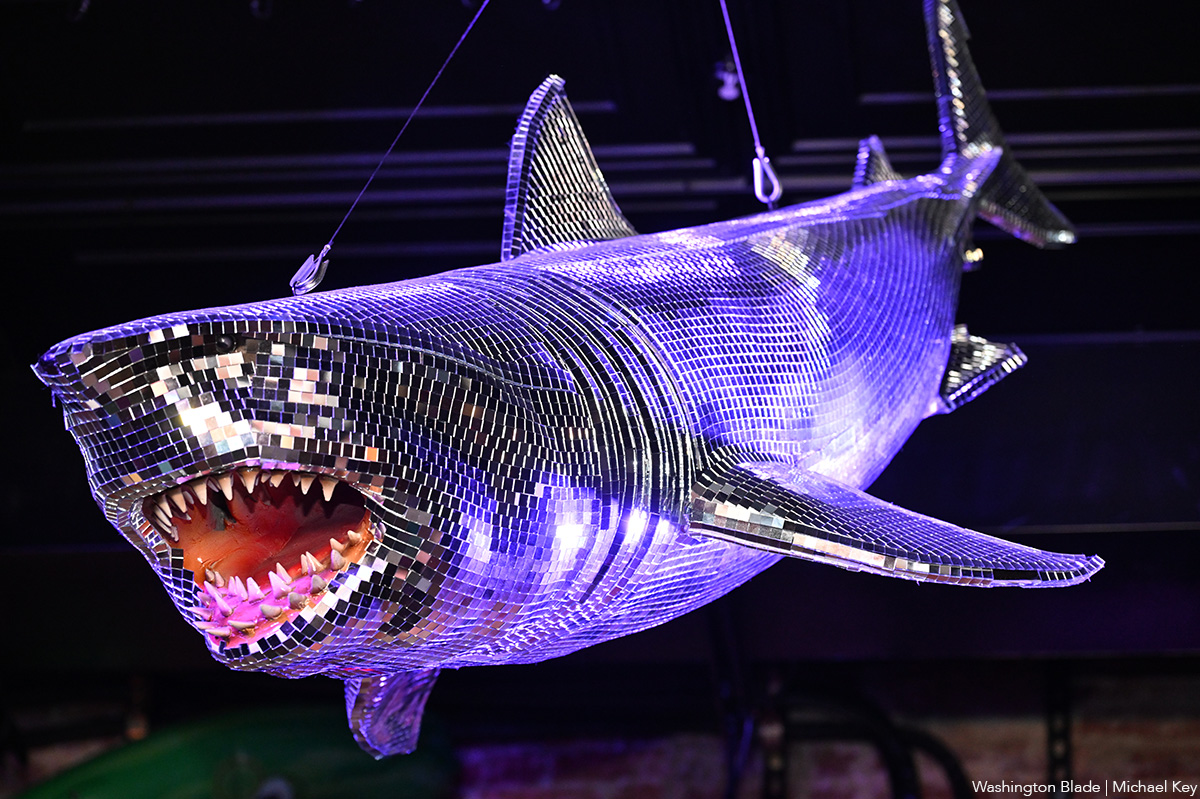
With Christmas in the rear view mirror, we can turn our attention to ringing in a much-anticipated New Year with a slew of local LGBTQ parties. Here’s what’s on tap.
Pitchers
This spacious Adams Morgan bar is hosting the “Pitchers’ Perfect New Year’s Eve.” There will be a midnight Champagne toast, the ball drop on the big screens, and no cover, all night long. The bar doesn’t close until 4 a.m., and the kitchen will be open late (though not until close). All five floors will be open for the party, and party favors are promised.
Trade
D.C.’s hottest bar/club combo is leaning into the Shark motif with its NYE party, “Feeding Frenzy.” The party is a “glitterati-infused Naughty-cal New Year’s Even in the Shark Tank, where the boats are churning and the sharks are circling.” Trade also boasts no cover charge, with doors opening at 5 p.m. and the aforementioned Shark Tank opening at 9 p.m.. Four DJs will be spread across the two spaces; midnight hostess is played by Vagenesis and the two sea sirens sensuously calling are Anathema and Justin Williams.
Number Nine
While Trade will have two DJs as part of one party, Number Nine will host two separate parties, one on each floor. The first floor is classic Number Nine, a more casual-style event with the countdown on TVs and a Champagne midnight toast. There will be no cover and doors open at 5 p.m. Upstairs will be hosted by Capital Sapphics for its second annual NYE gathering. Tickets (about $50) include a midnight Champagne toast, curated drink menu, sapphic DJ set by Rijak, and tarot readings by Yooji.
Crush
Crush will kick off NYE with a free drag bingo at 8 p.m. for the early birds. Post-bingo, there will be a cover for the rest of the evening, featuring two DJs. The cover ($20 limited pre-sale that includes line skip until 11 p.m.; $25 at the door after 9 p.m.) includes one free N/A or Crush, a Champagne toast, and party favors (“the legal kind”). More details on Eventbrite.
Bunker
This subterranean lair is hosting a NYE party entitled “Frosted & Fur: Aspen After Dark New Year’s Eve Celebration.” Arriety from Rupaul Season 15 is set to host, with International DJ Alex Lo. Doors open at 9 p.m. and close at 3 p.m.; there is a midnight Champagne toast. Cover is $25, plus an optional $99 all-you-can-drink package.
District Eagle
This leather-focused bar is hosting “Bulge” for its NYE party. Each District Eagle floor will have its own music and vibe. Doors run from 7 p.m.-3 a.m. and cover is $15. There will be a Champagne toast at midnight, as well as drink specials during the event.
Kiki, Shakiki
Kiki and its new sister bar program Shakiki (in the old Shakers space) will have the same type of party on New Year’s Eve. Both bars open their doors at 5 p.m. and stay open until closing time. Both will offer a Champagne toast at midnight. At Kiki, DJ Vodkatrina will play; at Shakiki, it’ll be DJ Alex Love. Kiki keeps the party going on New Year’s Day, opening at 2 p.m., to celebrate Kiki’s fourth anniversary. There will be a drag show at 6 p.m. and an early 2000s dance party 4-8 p.m.
Spark
This bar and its new menu of alcoholic and twin N/A drinks will host a NYE party with music by DJ Emerald Fox. Given this menu, there will be a complimentary toast at midnight, guests can choose either sparkling wine with or without alcohol. No cover, but Spark is also offering optional wristbands at the door for $35 open bar 11 p.m.-1 a.m. (mid-shelf liquor & all NA drinks).
-

 Sponsored5 days ago
Sponsored5 days agoSafer Ways to Pay for Online Performances and Queer Events
-

 District of Columbia4 days ago
District of Columbia4 days agoTwo pioneering gay journalists to speak at Thursday event
-

 Colombia4 days ago
Colombia4 days agoBlade travels to Colombia after U.S. forces seize Maduro in Venezuela
-

 a&e features4 days ago
a&e features4 days agoQueer highlights of the 2026 Critics Choice Awards: Aunt Gladys, that ‘Heated Rivalry’ shoutout and more





